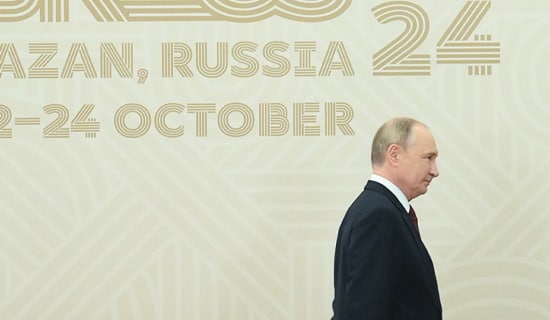On October 9, 2008, Egyptian sociologist and human rights activist Sa'd Al-Din Ibrahim, who is also on the board of the Arab Democracy Foundation in Qatar, posted an article on the liberal website www.middleeasttransparent.com in which he appealed to Muslims worldwide to learn openness from the Catholic Church in France. He said that Muslims should emulate France's attitude towards its Muslims in their own treatment of minorities in Muslim countries.
Ibrahim's article came in response to the French Catholic Church's decision to allow Muslim girls to wear hijab in French Catholic schools, after the public schools banned head coverings on school grounds. He called for this move to be viewed as proof that peaceful coexistence and mutual support between religions is possible in practice.
Following are excerpts from Sa'd Eddin Ibrahim's article: [1]
Catholic Church Schools in France Accept Muslim Girls, Teach Them Islam, and Let Them Wear Hijab
"While we watch and read about sectarian strife and hostilities against Christians – the Copts in Egypt and the Catholics and Mandaeans in Iraq – the French press is celebrating a unique phenomenon [that took place] during this school year – namely, hundreds of Muslim girls attired in hijab enrolling in Catholic convent schools after being rejected by public schools for insisting on wearing a head covering.
"Faced with the public school system's requirement [that girls remove their head covering], some of the Muslim families in France complied. They had economic problems and could not afford private schools, and the prospect of a free public school education for their daughters was too attractive to resist.
"Other Muslim families opted to keep their daughters at home in order to preserve the custom, which they see as part of their religion.
"The escape from this impasse came when the French Catholic Church announced its decision to open the doors of convent schools to Muslim girls without requiring them to remove their head covering. Thousands of Muslim families, mostly of North African origin, welcomed this decision, and hastened to enroll their daughters in Catholic schools with affordable tuition. These schools, for their part, decided to offer weekly classes in Islam, open not only to Muslim students but to any student interested in the subject.
"This move by the Catholic Church has numerous implications, [some of which are discussed below]:"
Islam and Christianity Are More Similar Than They Are Different
"[This move] shows that [the Catholic Church] is sure of itself, and is willing to open up to others who are not Christians or Catholics. It [also] provides counterevidence to the 'clash of civilizations' theory, which has been advocated for several years now by American political scientist Professor Samuel P. Huntington.
"[In fact,] the Catholic Church's decision suggests an [hypothesis] that is diametrically opposed [to this theory] – namely, that it is possible for civilizations to coexist and even to [encourage] diversity and mutual help without fear of losing their values, norms, and cherished traditions.
"No less important is that this move is viewed by some commentators as being aimed at strengthening solidarity among believers and recruiting them to battle the atheist and materialist ideology. In other words, the Church, in the guise of convent schools admitting modestly [attired] Muslim [girls], has announced to the world that there are more [elements] uniting believers, irrespective of gender or religion, than there are interreligious or inter-sectarian conflicts that separate them."
Islam and Christianity vs. Extreme Secularism
"This 'alliance of faith,' is, [in effect,] the Catholic Church's response to the French extreme secularists, who, since the 1789 French Revolution, have been so anxious to curb the power of the Church. Not only did they completely separate the Church from the state, but they also launched a long-term campaign against the Catholic Church, [because] during the preceding two centuries, the 16th and 17th, [the Church] had been the King's faithful ally against 'the people.'
"As part of this policy, the state established government schools and prohibited religious instruction in them. It also stopped funding and all other support for Catholic schools, and taxed all Church property.
"The latter, for its part, combated the ideology and slogans of the French Revolution, and in the 19th century the pope ruled that democracy, liberty, and equality were 'filth created by Satan,' since [these notions] contravened the natural order established by God for His creations on Earth…
"This conflict did not abate until the first quarter of the 20th century… when the state permitted the Church to open Catholic schools [on French territory]…
"Where do French Muslims stand on this issue? Why did the French Catholic Church decide, with Rome's blessing, to open its convent schools to Muslim girls attired in hijab? Is it an attempt at proselytizing aimed at making these girls into Christians?
"The answer to the last question is negative, since these schools offer weekly classes in Islam taught by Muslim teachers – thereby encouraging the girls to preserve their heritage.
"The answer to the first two questions is that today the Catholic Church seeks faithful allies from among [members of] other monotheistic religions, i.e. Islam and Judaism, in order to form a broad front of believers, to stand fast against extreme secularism and global materialism. In this respect, it sees religious Muslims in Europe as good allies.
"This is why the Church defends the Muslims' right to maintain their faith and to observe their rituals and traditions, including their dress code. In other words, the Catholic Church is encouraging French Muslim girls to become staunch opponents of the extreme secularist position of the French state."
The Arab World Needs Anglo-Saxon Secularism
"While we are discussing the issue of secularism and religion in France, it is important to let the Arab readers in general, and those in Egypt in particular, know that the term 'secularism' has a number of meanings and uses, which are usually confused in public discussions. Three of these [are especially widespread].
"For Anglo-Saxons, the term 'secularism' connotes the separation of state from religion, which involves no hostility towards or incitement [against religion]. This meaning is the closest to Jesus' adjuration to render unto Caesar what is Caesar's and unto God what is God's – which means that the matters of the world to come are Allah's domain, while the issues of the regime and government are under the jurisdiction of the state, [i.e.] Caesar.
"In other words, it is not advisable to confound the matters of state with those of religion. Each respects the other without attempting to dominate it.
"The second use, which is French par excellence, dates back to the French Revolution. In this sense, 'secularism' denotes dissociation [from religion, accompanied by] a hostile attitude towards it. Unfortunately, Arab translators rendered the term 'secularism' in this specific sense.
"The third meaning is rooted in the secularist Marxist [tradition], which entails not only the separation of state from religion according to the Anglo-Saxon [usage], or even the hostility towards religion and anti-religious incitement [advocated by] the French, but promotes the eradication and elimination of religion, both as faith and as ritual.
"We should adopt the Anglo-Saxon use [of the term 'secularism'], which does not reject or combat religion but respects it, while at the same time keeping it separate from political issues."
Muslims Must Respect Non-Muslims Living Among Them
"Be that as it may, the Muslims cannot help acknowledging the kindness that the Catholic Church in France has shown them by admitting Muslim girls who wish to observe Islamic traditions.
"The Muslims can do no less than to learn [from this gesture] how to take care of, defend, and honor the non-Muslims living in their midst – because failure to do so would be tantamount to contemptible extremism, immaturity, and personal insecurity."
Endnote:
[1] www.middleeastetransparent.com, October 9, 2008.





